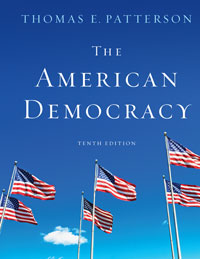| bipolar (power structure) | A power structure dominated by two powers only, as in the case of the United States and the Soviet Union during the cold war.
|
 |
 |
 |
| cold war | The lengthy period after World War II when the United States and the Soviet Union were not engaged in actual combat (a “hot war”) but were locked in a state of deep-seated hostility.
|
 |
 |
 |
| containment | A doctrine, developed after World War II, based on the assumption that the Soviet Union was an aggressor nation and that only a determined United States could block Soviet territorial ambitions.
|
 |
 |
 |
| deterrence policy | The idea that nuclear war can be discouraged if each side in a conflict has the capacity to destroy the other with nuclear weapons.
|
 |
 |
 |
| economic globalization | The increased interdependence of nations’ economies. The change is a result of technological, transportation, and communication advances that have enabled firms to deploy their resources around the globe.
|
 |
 |
 |
| free trade | The condition where tariffs and other barriers to trade between nations are kept to a minimum.
|
 |
 |
 |
| internationalist | The view that the country should involve itself deeply in world affairs.
|
 |
 |
 |
| isolationist | The view that the country should deliberately avoid a large role in world affairs and instead concentrate on domestic concerns.
|
 |
 |
 |
| military-industrial complex | The three components (the military establishment, the industries that manufacture weapons, and the members of Congress from states and districts that depend heavily on the arms industry) that mutually benefit from a high level of defense spending.
|
 |
 |
 |
| multilateralism | The situation in which nations act together in response to problems and crises.
|
 |
 |
 |
| multinational corporations | Business firms with major operations in more than one country.
|
 |
 |
 |
| national interest | That which is best for the nation in its dealings with the world in terms of protecting its security and its way of life.
|
 |
 |
 |
| preemptive war doctrine | The idea, espoused by President George W. Bush, that the United States could attack a potentially threatening nation even if the threat had not yet reached a serious and immediate level.
|
 |
 |
 |
| protectionism | The placing of the immediate interests of domestic producers (through, for example, protective tariffs) above that of free trade between nations
|
 |
 |
 |
| transnational terrorism | Terrorism that transcends national borders and often targets people and locations other than the ones directly at issue.
|
 |
 |
 |
| unilateralism | The situation in which one nation takes action against another state or states.
|
 |
 |
 |
| unipolar (power structure) | A power structure dominated by a single powerful actor, as in the case of the United States after the collapse of the Soviet Union.
|





